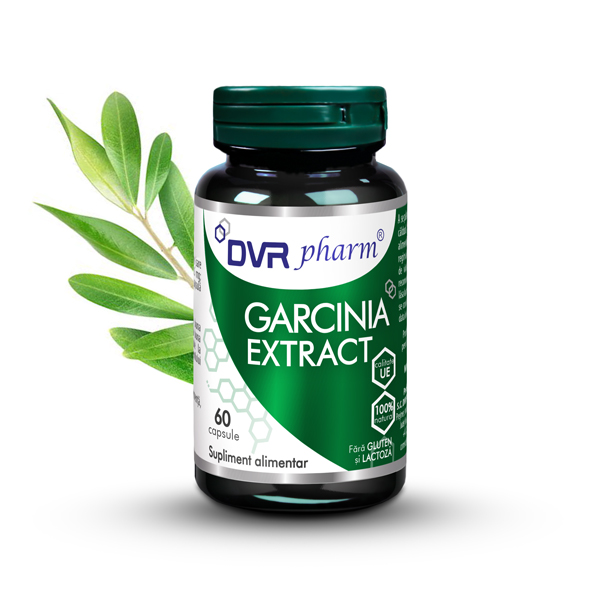Garcinia extract is a product that has in its composition two extracts from the fruits of the Garcinia cambogia plant, together with a potassium salt. It is among the best products for eliminating unsightly adipose tissue 1 , especially cellulite 2 . Studies show that taking garcinia extract doubles or even triples the beneficial effects of exercise 3 and massage.

Physiological actions Garcinia extract:
- contributes to the proper functioning of the venous circulation
- supports normal lipogenesis – contributes to maintaining the proportion of adipose tissue within normal limits
- contributes to the good functioning of the digestive system;
- contributes to maintaining blood sugar, cholesterol and triglycerides within normal limits
Composition:
- Garcinia (Garcinia cambogia), fruit, aqueous extract (calcium salt) with min. 60% hydroxycitric acid 225mg;
- Garcinia (Garcinia cambogia), fruit: 225mg;
- hard gelatin capsule.
Mode of administration of Garcinia extract:
Take 2-4 capsules a day. In the first 3 days, one capsule per day is administered, then increasing the dose – depending on intestinal transit – up to the maximum of 4 capsules per day. If the intestinal transit is too intense, the dose will be reduced accordingly.
Precautions and contraindications:
Contraindicated in severe mental disorders (dementia, Alzheimer’s) and type 1 diabetes.
Presentation of Garcinia extract:
Bottle of 60 capsules.
Product notified by the National Research-Development Institute for Food Bioresources-IBA, National Service for Medicinal Plants and Beehive Products.
Notification no. 8896/06.08.2014
References:
1 Updates on the anti-obesity effect of Garcinia (-)-HCA origin.; Chuah LO, Ho WY, Beh BK, Yeap SK.; Obviously. Based Complement Alternative Med. 2013 2 Effect of Garcinia cambogia supplementation on indices of obesity : A systematic review and dose-response meta-analysis.; Golzarand M, Omidian M, Toolabi K.; Complete Ther Med. 2020 3 Use of Garcinia extract (hydroxycitric acid) as a weight loss supplement: a systematic review and meta-analysis of randomized clinical trials.; Onakpoya I, Hung SK, Perry R, Wider B, Ernst E.; J Obese. 2011


Reviews
There are no reviews yet.